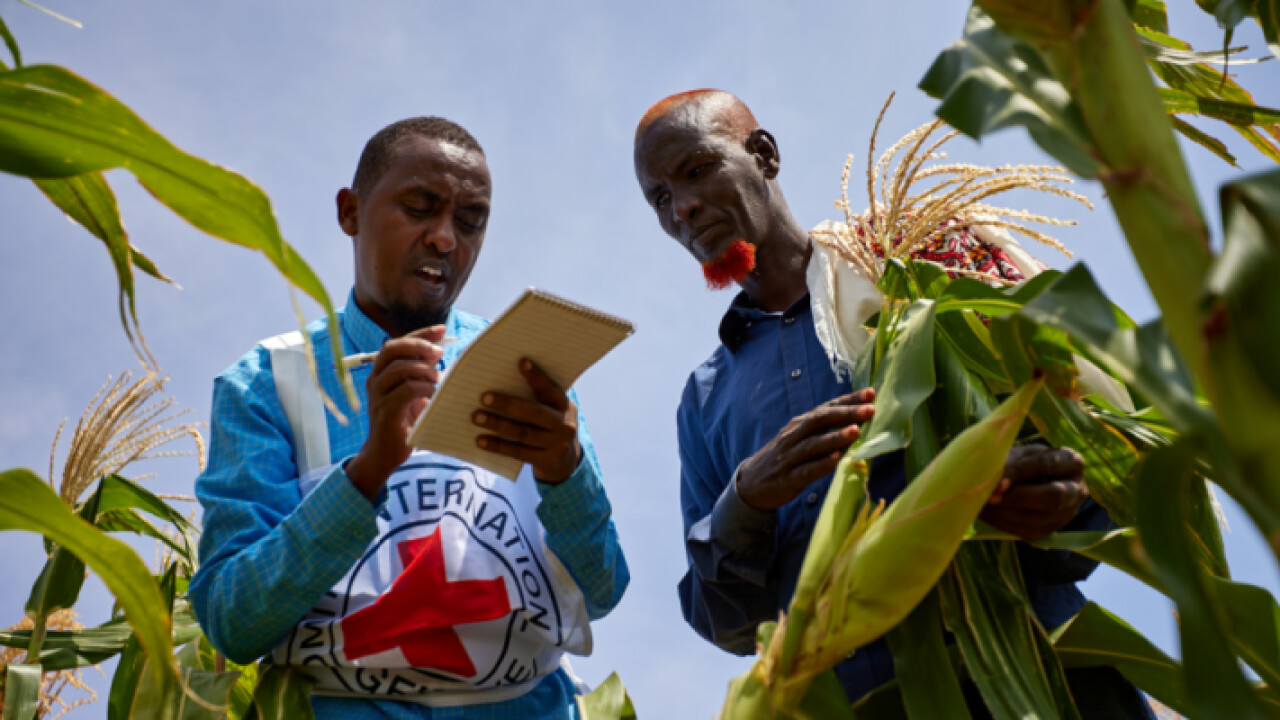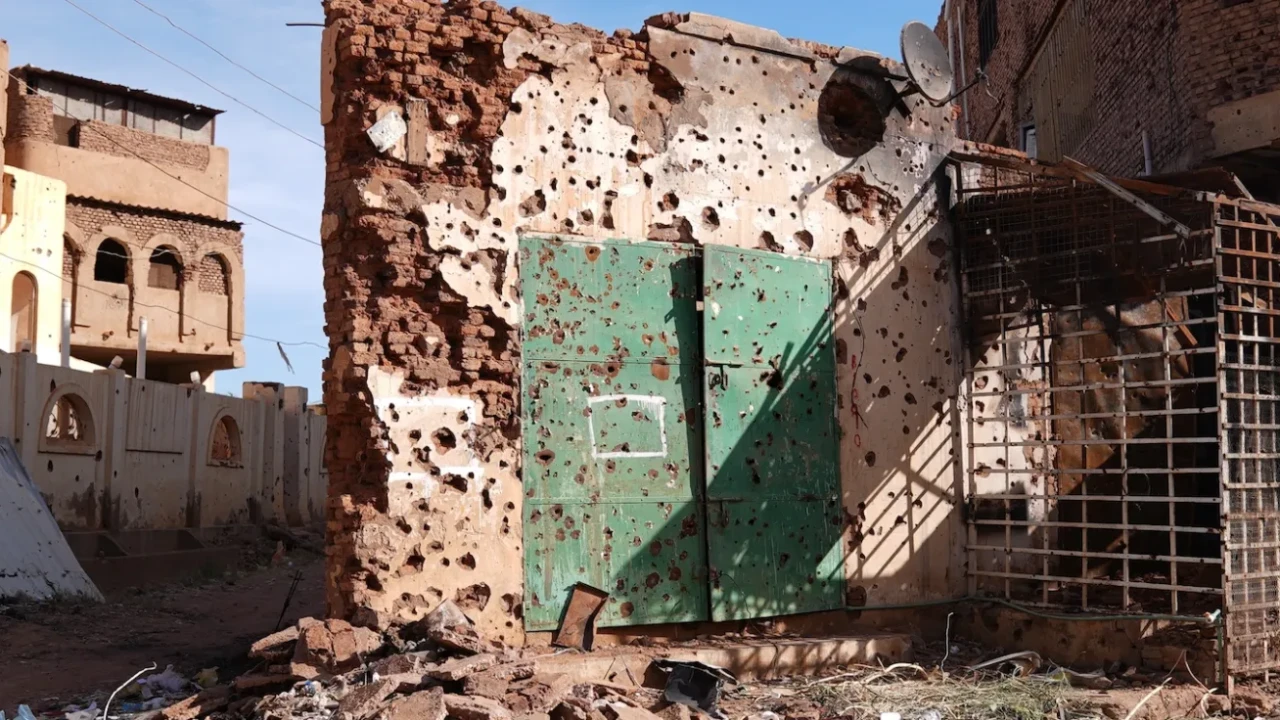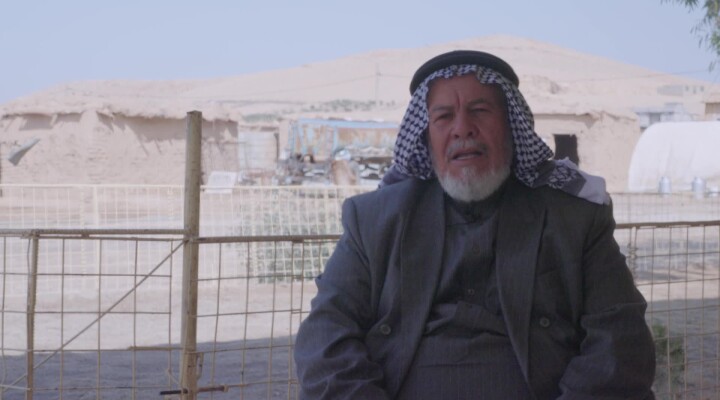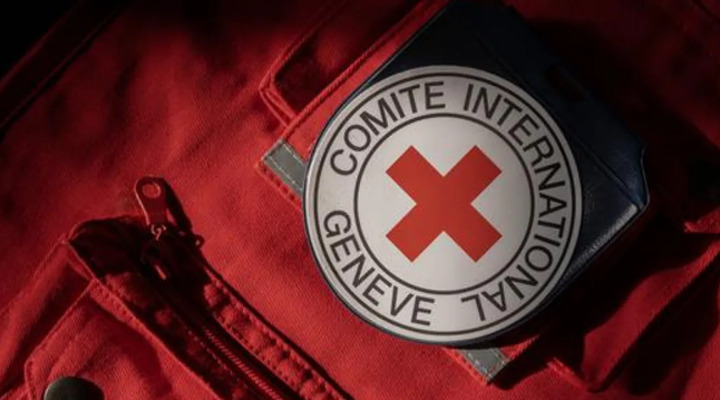Somalia: Cash To Build Resilience To Climate Shocks

This is a modal window.
In Somalia, 150,000 families in conflict-affected areas have received life-saving cash as they face drought and inflation. This emergency relief is the first in a series of monthly payments to support people pushed out of their homes by the severe drought battering the country.
Through a programme run by the International Committee of the Red Cross (ICRC) totaling more than $13 million so far, each family was given $90 to cover the cost of food or other necessary items,
“When I received the money, I used $50 to open a small shop. I am using the rest of the money to buy food for my children”, says Dadir Ahmed Adan, who has been living in Shil Gadud displacement camp for the past two months. “I left Bakool region after losing my livestock because of the drought. The rains failed three years, so the animals all died.”
The drought has lasted for four consecutive rainy seasons, and its economic impact on the vulnerable communities is aggravated by the protracted armed conflict and rising food and fuel prices. The purpose of cash assistance is to help the most vulnerable people to survive and to minimize their debt. “To travel from Bakool to Beledweyne I used credit. I paid back my debt to the driver after receiving money from ICRC,” Dadir Ahmed Adan explains.
With the next rain due in October, rural families, stripped of their livelihoods, continue to flee to towns, hoping to receive help from relatives and aid groups. More than 30,000 people were displaced in May, 100,000 in June, while July recorded 83,000, according to UN data. Since January 2021, more than a million people are believed to have been displaced because of the drought.
To help people build resilience in the face of the worsening impact of climate shocks, the ICRC supports agricultural cooperatives with training, drought resistant seeds, farming tools and cash for fuel needed to irrigate.
“The cooperatives have a good chance to survive even during this drought”, says Hassan Nur, an agronomist at the ICRC. “People come together as a community and when they are motivated, they use their energy and produce good results.”
The ICRC will continue distributing cash assistance to people in the conflict affected areas of Somalia and rehabilitating boreholes and wells. ICRC will also continue to support primary health care services and mobile health clinics.
SHOTLIST
Length: 4’00’’
Location: Beledweyne, Somalia
Date Of Filming: 28th,29th and 30th July 2022
Camera: Abdikarim Mohamed
Copyright: ICRC access all
On Screen Credit: ICRC written or logo attached to story
00:00 - 00:05
Hawa Osman Abdi buying meat from a lady butcher stationed just outside her IDP camp - Shil Gadud - which is located in the outskirts of Beledweyne in Hirshabelle state.
00:05 - 00:08
Hawa Osman Abdi buying items and making the payment using her phone. The kiosk is in Shul Gadud IDP camp.
00:08 - 00:25
Hawa buying groceries from Dadir Ahmed Adan who runs a small shop in the camp and is also a resident in the camp.
SOUNDBITE Dadir Ahmed Adan, in Somali:
00:25 - 00:33
When I received the money, I used 50 USD to open a small shop.
00:33 - 00:36
I am using the rest of the money to buy food for my children.
00:36 - 00:42
Shot of groceries in Ahmed Dadir's shop in Shil Gadud IDP camp.
SOUNDBITE Dadir Ahmed Adan, in Somali:
00:42 - 00:43
I left Bakool region after my livestock perished because of the drought.
00:44 - 00:46
The rains failed three years, so the animals all died.
00:46 - 00:53
Ahmed Dadir at his shop in Shil Gadud IDP camp.
SOUNDBITE Dadir Ahmed Adan, in Somali:
00:53 - 00:55
The transportation from Bakool to Beledweyne was on credit.
00:58 - 01:04
I paid back my debt to the driver after receiving money from ICRC.
01:04 - 01:11
Hassan Nuur (left), ICRC agronomist, and Hassan Ali Abdi, the chairman of Hor Socod cooperative inspect the maize farm located in Lafoole village.
SOUNDBITE Hassan Nuur, ICRC agronomist in Somali:
01:11 - 01:19
We do this to keep their farming business going despite the droughts that occur.
01:19 - 01:24
Shot of Hassan Ali walking in the plantation.
01:24 - 01:33
Hassan Nuur and Hassan Ali standing in the maize plantation.
01:33 - 01:54
Panning shot of the maize farm in Lafoole village, 15km east of Beledweyne town in Hirshabeele State. The farm is owned and run by Hor Socod cooperative.
01:54 - 01:58
Hawa Osman in Shil Gadud IDP camp.
01:58 - 02:03
Hawa Osman Abdi and her three granddaughters outside their home In Shil Gadud IDP camp.
02:03 - 02:30
Various shots of Hawa Osman's oldest granddaughter cooking anjera, a traditional Somali dish, outside their home in Shil Gadud displacement camp.
02:30 - 02:35
Abdirahman Nuune Allaale (left), in Farmajabalay IDP camp together with other residents put up a shelter for a new arrival in the camp. The camp is located 5km west of Beledweyne town.
02:35 - 03:06
Various shots of camp residents in Farmajabalay IDP camp building a shelter - a dome shaped structure - to house a new arrival the camp.
03:06 - 03:15
Children playing football in the newly setup Rasmi IDP camp located in the outskirts of Beledweyne town in Hirshabelle state.
03:15 - 03:18
Shelter at the centre of an IDP settlement with a sign displaying the name of the camp - Rasmi IDP camp.
03:18 - 03:40
Various shots of herders and their animals at the livestock market in Beledweyne town.
03:40 - 04:00
Shots of camels in Beledweyne's livestock market.
Ends
For further information, please contact:
Alyona Synenko (English/French), ICRC Nairobi, +254 716 987 265, asynenko@icrc.org
Sanela Bajrambasic, (English) ICRC Somalia, +254 700 888 131, sbajrambasic@icrc.org
Abdikarim Mohamed (English/Somali), ICRC Somalia, +254 770 171 756, mabdikarim@icrc.org
Established in 1863, the ICRC operates worldwide helping people affected by conflict and armed violence and promoting the laws that protect victims of war. A neutral, independent and impartial organization, its mandate stems from the Geneva Conventions of 1949.


